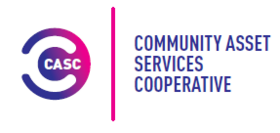

Safeguarding means protecting the health, wellbeing and human rights of adults at risk, enabling them to live safely, free from abuse andneglect. It is about people and organisations working together to prevent and reduce both the risks and experience of abuse or neglect.
Disclosure and Barring Service (DBS) Checks
The DBS check has now replaced the Criminal Records Bureau checks. DBS checks are used when your organisation provides unsupervised activities for children young people and vulnerable adults. “Unsupervised Activities” for children, young people or vulnerable adults are activities where no guardian or carer is present.
Your organisation is entitled to ask for a Disclosure and Barring Service (DBS) check on staff trustees and volunteers taking part in providing unsupervised activities including
If a child or young person or vulnerable adult attends an activity aimed at other people in the community this does not require your organisation to check the DBS of staff or volunteers taking part.
An example of a situation where a check is not required is a person with a learning disability sitting in on an adult education session.
If young people aged between 16 years and 18 years are employed by your organisation you do not require a DBS check.
If your organisation works with children, young people or vulnerable adults you must protect them from harm and safeguard them.
Safeguarding children young people and vulnerable adults means
Most local authorities have an Independent Safeguarding Board for Children and an Independent Safeguarding Board for Adults.
The safeguarding boards provide information and support and training for community groups who want to work with vulnerable people. The independent safeguarding boards also collect information about safeguarding incidents in Manchester and you must report any incidents that occur in your organisation to them and the police.
If your organisation is to work with children young people or vulnerable adults you must appoint a “designated officer”. A designated officer must be trained and accredited to an advanced safeguarding Level 3 qualification. A designated officer is responsible for: